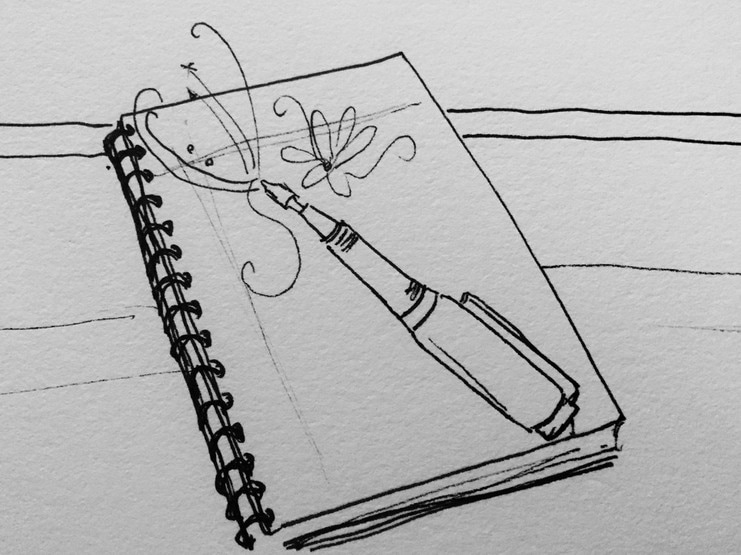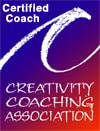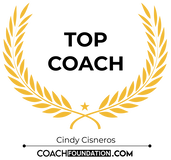|
When I talk about journaling as a therapeutic tool, I am not talking about "Dear Diary, today I..." entries. I am talking about what I commonly describe to patients as a daily emotional download- a freestyle writing session of what is on your mind, what you are feeling, or what you need to "dump" somewhere to free up some space in your brain. Sometimes I may recommend specific topics based on our session for you to explore and try to make connections about- this homework-style journaling is also important. I will not recommend journaling to my patients without some simple guidelines and words of caution. Journaling is a powerful creative tool that is healing when utilized in the right way. If you are interested in using journaling a word of caution: since it can be such a powerful tool, please do not embark on this unless we have first talked about its usefulness to you in your process, as well as safe and responsible ways for you to utilize it. Specifics, as always, will be particular to you and your journey. The following guidelines, however, are important for your journaling in general. Come back and review these tools as often as you need to as you write. First, it is important to briefly explore: why is journaling so powerful? I will give you the analogy I frequently use with kids and teens. Imagine a balloon, filled up with air. You are holding it by the end, pinching it off so no air will escape. You can at this point either add more air (balloon may explode) or release some air (to prevent this). Imagine you let go of the balloon- what does it do? Flies all over the room as it expels the air that was trapped inside (also not a good plan). In a simple analogy, journaling is powerful for one reason because it is releasing air from your balloon so it won't explode. However, there are techniques to use while journaling to prevent your balloon from flying out of control (imagine releasing some air through your fingers, then pinching the balloon closed again, for example). A guideline that is important here is emotional containment. Emotional containment, simply put, is containing your emotions. We do this by creating parameters for how long we will expose ourselves to something emotionally triggering. For journaling in the beginning, for example, I will recommend writing one page, freestyle, then stopping. Put the journal away (have a place for it like a drawer or a shelf) and follow this with another activity that is completely different. Read a book that is not related to what you wrote about (SciFi or Fantasy anyone?) Take a warm shower, take a walk, go into a different room- do something different to "close" the journaling activity. Do not continue to write, do not sit and ruminate, do not call someone and rehash what you wrote, etc. Separate the time and space from the journaling activity with something else. Limit the amount of time spent. This is a simple, but important journaling guideline. A second reason why journaling can be so powerful: you will make connections in your brain. Have you ever heard the studying recommendation: see it, say it, write it down? Our brain processes information in different ways, and by writing about things you have also talked about in therapy, looking back over what you have written, writing more, etc, you are helping your brain make powerful connections about your experiences, both past and present, and how they impact you. These can be significant and emotional realizations, that also need support and rules to help protect you and assist you in receiving them in a positive way. This guideline for journaling is to simply be sure you are discussing in session what you are writing and following your therapist's recommendations when you return to write again. You may not always have to do this as thoroughly as I would recommend that you do when starting out, but, until you learn more about your journaling process and how it impacts you this is a very important guideline. When you are journaling in therapy, talk to your therapist about what you write, what you learn about yourself, how you feel before, during and after, and how the work impacts your symptoms. Like most therapeutic processes, you will work with your therapist to adjust and mold this tool to best help you on your journey to mental wellness! (c) 2017 CREATIVELY, LLC Comments are closed.
|
get more from The Creativity CoursesLiking educational topics and knowing what's hot in creativity? Creatively has online courses, with an interactive creative community, coaching sessions and more in the Creativity Courses. Want these blogposts in a newsletter? Subscribe here, and get a free gift. Cindy Cisnerosis a Creativity Coach, Creative Therapist and Professional Artist in Sykesville, Maryland. She is an expert straddling the realms of arts, creativity research, psychology, therapy, and coaching. She provides Online Creativity Counseling in Maryland and Virginia, and Online Creativity Coaching throughout the USA, Canada and the UK tailored for the discerning, imaginative, artistic, and neurodiverse. The information provided in this blog is from my own clinical experiences and training. It is intended to supplement your clinical care. Never make major life changes before consulting with your treatment team. If you are unsure of your safety or wellbeing, do not hesitate to get help immediately.
Archives
July 2024
|
|
Concierge Therapy for Creatives in Maryland
Creativity Coaching Worldwide including the USA, UK and Canada |
Telephone |
|


 RSS Feed
RSS Feed

